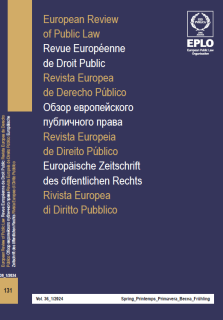
Unlocking the Synergy: Artificial Intelligence and (Old and New) Human Rights
Carlo Casonato
Professor of Comparative Constitutional Law, Law School, University of Trento, Jean Monnet Chair on AI and EU Law (T4F), Editor-in-Chief of the BioLaw Journal, carlo.casonato@unitn.it
Artificial intelligence (AI) deeply and pervasively impacts our lives. In this short paper, I propose two lines of thoughts aimed at updating the catalog of human rights in light of the potential and risks of AI (mainly Machine Learning). The first considers the adaptation of certain traditional principles (informed consent and non-discrimination) to the challenges posed by AI. The second covers four new rights, built upon the specific characteristics of AI systems, with the aim of effectively addressing AI pros and cons.
Keywords: Artificial intelligence; AI act; fundamental rights; informed consent; non-discrimination
L’intelligence artificielle (IA) a un impact profond et omniprésent sur nos vies. Dans ce court article, je propose deux pistes de réflexion visant à mettre à jour le catalogue des droits de l’homme à la lumière du potentiel et des risques de l’IA (principalement l’apprentissage automatique). La première envisage l’adaptation de certains principes traditionnels (consentement éclairé et non-discrimination) aux défis posés par l’IA. La seconde couvre quatre nouveaux droits, fondés sur les caractéristiques spécifiques des systèmes d’IA, dans le but d’aborder efficacement les avantages et les inconvénients de l’IA.
Mots-clés: Intelligence artificielle; Loi sur l’IA; droits fondamentaux; consentement éclairé; non-discrimination
*The paper reproduces an article previously published in BioLaw Journal, 2023/3, 233-240, and is herein published with permission.





















